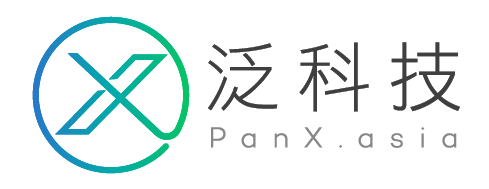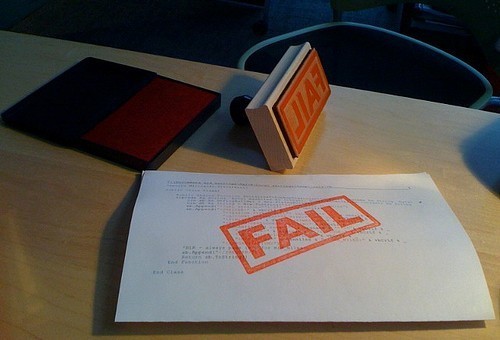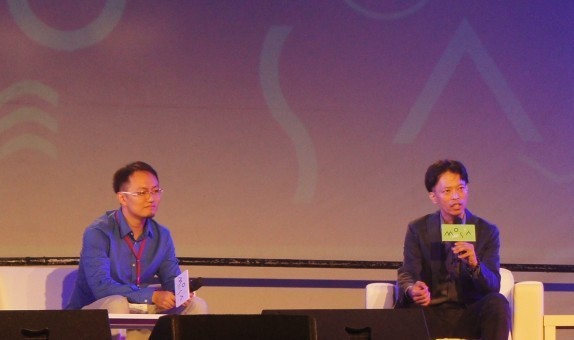Want to Know What’s on Investors’ Mind? Figure Out at Global Founders Meet In Formosa Forum by MOSA!
Many startups in the Internet industry have been back into the market in Taiwan recently, however, lack of investments from venture capitals and angel investors is still the main weakness in Taiwan that adversely affects the growth of the startup market in Taiwan. On the other hand, from investors’ perspective, the projects from Internet startup are not mature or interesting enough for them. Moreover, in the transition phase of the industry in Taiwan, it is hard for investors to make investments suddenly from the hardware industry to Internet industry. “Let those investors share what kind of industries they are interested in, it would be a new and exciting chance to let investors honest to those startups!”
MOSA, which stands for Movement, Open, Startup and Accelerate, held an international startups forum “GLOBAL FOUNDERS MEET IN FORMOSA” on the 7th and 8th of October in Taiwan. The forum invited 40 angel investors from early, middle and late stage investments for them to “pitch” new ideas on the forum. They shared their experiences on investment strategies, targets of industries and more importantly, investment values during the meeting.
Time of Startups to Show their Professionalism by Gathering Altogether
AlumVest is a cross-border innovative technology platform that mainly provides various resources of investors to industries. The founder Arthur Chen is not only an entrepreneur himself, but also a lecturer in many startup projects including Garage in National Taiwan University (NTU), Yeser Program & Startup Lab in National Chiao Tung University (NCTU) and FITI in the project of Innovation and Entrepreneurship from NARLabs. He is also an advisor of managing methods on “Design Thinking,” “ Lean Canvas,” and “Growth Hacking.”

Arthur had worked in Texas Instruments for two years after completed his Master degree in Electronic Engineering at NTU, but his passion always lies in “serving the underserved through innovations.” By chance Arthur read a report of Kenya published by UN, he learned that residents in Kenya spend half of their living expenses on kerosene lamps, so he decided to apply his knowledge in solar energy and started the Kenya project “Light Up” with some engineers and consultant friends. In the project, they not only found the method to decrease the cost of solar-energy lamp, but also provided various payment options such as by saving, renting or prepaying for Kenya residents. The innovative business model allowed children in Kenya to study with the light, and more importantly, they created more incomes for locals by the solar energy equipment and brought in positive impact to the society. The project at the end successfully cooperated with the Bill & Melinda Gates Foundations founded by Bill Gates, the ex-CEO of Microsoft in order to apply the technology to more countries who need similar assistance.
As an entrepreneur for the second time, Arthur observed that it came to the stage for Taiwan that required integration of the startup and investment industries.
Matt Cheng, the founder of Cherubic Venture, once mentioned, co-investment is the current trend for a group of angel investors, that brings in more assistance to startups. AlumVest also applied this innovative model as their business strategy, which is similar to receive “crowdfunding” from private equities. AlumVest provided the report of Due Diligence on investment risk evaluation for angel investors to let all of the investors understand the business model of AlumVest.
In addition, it established a “feedback mechanism” for startups advisors in Taiwan, which even motivated them to give advice for startups. Wayne, the founder of AMA technology and also an angel investor, said, “startups have to provide investment risk evaluations to angels, otherwise, angels have to invest their money randomly with unpredictable risks. It is hard to ask for their investment support again if investors lost confidence on failed startups.” “The impact of investor aggregation” is another advantage to gather investors altogether. “For example, if a real estate platform is supported by a group of real estate investors who share relevant experiences, build networking and invest money through this platform, it is easy for that platform to be popular and successful,” said by Wayne.
How to build up an “investment industry” in Taiwan? Step one – “the impact of investor aggregation” from MOSA
AlumVest added the concept of “the impact of investor aggregation” into the agenda of MOSA’s conference. On 10/7, the meeting in the morning started with the “pitch” of 40 investors, in which they shared their investment strategies and related resources they can provide. At noon, the luncheon gathered all investors from early to late stages to share experiences and build networks with each other. “It is very important to build an integrated chain from early-stage to late-stage investors in the startup industry,” said by Arthur. Arthur pointed out that there is a key factor that has been ignored by the entrepreneurial environment in Taiwan – different phases of business require different kinds of investors. For example, some investors are more familiar with strategies in the early stage, while some know more strategies in the late stage of investments.
Moreover, Arthur also shared a phenomenon in this industry. “Taiwan owns many early-stage investors in the startup industry, but what we lack are investors form middle and late stages. Industry leaders are still concerned about the Internet industry and it is why MOSA allows investors to exchange information with each other and create a more integrated chain of venture capitals in this industry.” Arthur also explained the diverse phenomena of investment industry. Some investment institutions aim on buying business; some focus on sales of business; and some help restructure the company’s organisation. Therefore, without integration of investment industry, people will not be aware that “investment” is one kind of industry sectors. Investment requires mutual trust within investors, and therefore, networking with each other by social events will be able to achieve the goal of integration.
The afternoon meeting on 10/7 provided the “matching meeting” for 150 startups to have face to face communications with 40 investors. MOSA invited investors from different counties, including the United States, Europe, Israel, Saudi Arabia, Japan, Southeast Asia, China and Hong Kong. Startups are able to explore the potential markets in different countries by this chance. “It is not necessary to “pitch” in the match. Startups and investors will be able to know more about each other’s thoughts and specialisations by this match, which also is the first step to build up long term relationship.”
The participant of investors was a highlight in the agenda. AlumVest was looking for more groups who were interested to join them. In the long run, they probably will have enough relevant resources to create an Asian versions’ investment report to the startup industry. “We will start our goal from MOSA to produce more transparent information to investors to build up their confidence on the startup industry in Taiwan”
MOSA
MOSA Global Founder Meet was an event with a theme of “entrepreneurs”. Based on the needs of entrepreneurs, MOSA designed relevant industrial topics into the conference and also promoted the concept of equal relationship between venture capitals and entrepreneurs. It is one of the few events that bring both Taiwan and the global together in one theme. Besides, MOSA is a c0-brand with other innovative groups that exclusive belongs to Taiwan instead of any organisations or individuals.
Innovative Group recruited many volunteers for the conference assistance. For example, Wayne Huang was responsible for agenda planning and invitations of speakers; Changee was in charge with events strategy and production; AlumVest was the host of the “matching meeting”; TSS was responsible for planning speeches for two forums; FITI held startup lectures; Power for point was in charged with workshop sessions; Martin was responsible for the PR, and many student volunteers and social networks and media helped promote the event. “We believe that by gathering diverse powers from different fields, the event and efforts will be shown to the world.”
“Let those investors share what kinds of industries they are interested in and it would be a new and exciting chance to let investors to be honest to those startup!”
中文版連結
Cover photo: MOSA












留言討論